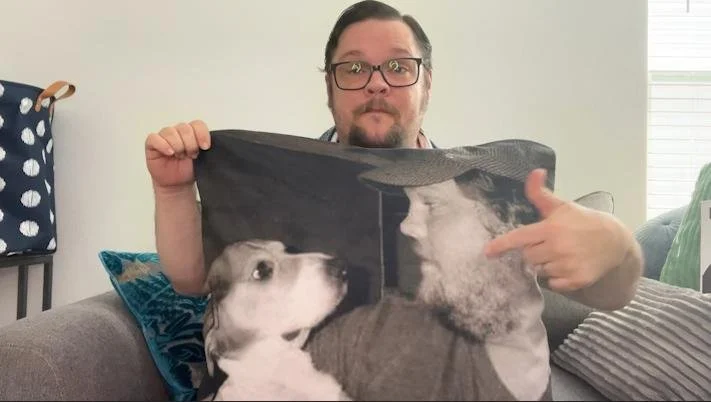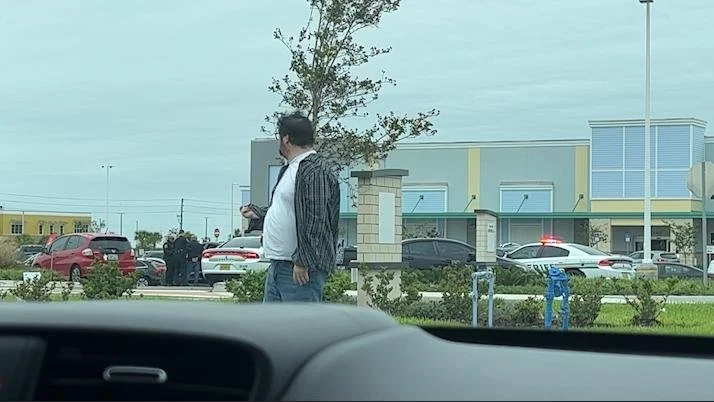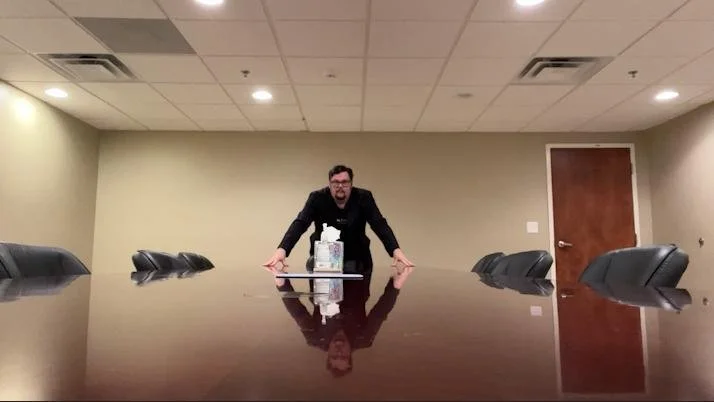At its core, .ask is a microbudget mind-bender that taps into the existential dread of the digital age with eerie precision. Anchored by a fully committed performance from writer-director Chris Vander Kaay, the film begins with sharp self-awareness and veers into increasingly surreal and unsettling territory.
Vander Kaay plays a version of himself: a 40-something YouTuber desperate for validation, clout, and success through his channel Put It Out There. Early on, the film cleverly lampoons influencer culture, portraying Chris as both cringe-worthy and compelling—an overzealous motivational speaker whose sincerity is buried beneath desperation. When he meets the mysterious life coach Bram Turnket (a figure he only ever communicates with virtually), Chris takes the advice to “be brutally honest” with his audience. And it works. Views soar. Sponsorships roll in. His teeth—yes, his real, rotting teeth—mysteriously get replaced overnight.
The first half of the film is fascinating. It’s the most successful attempt yet at capturing YouTube-style storytelling within a narrative feature. It’s paced like a social media feed, using monologues, voice notes, live streams, and jump cuts to build an immersive found-footage structure. It’s funny, weird, and chilling in equal measure. Think Creep by way of Black Mirror without the Netflix budget.
However, as Chris continues down the rabbit hole—begging the universe for a new home, professional success, and even his childhood dreams—the film begins to wobble. What starts as a razor-sharp satire turns into a muddy supernatural thriller. The escalation of Chris’s “wishes” feels disjointed, and while the absurdity is often the point, the story begins to lose its grip. The more miraculous (and ominous) his success becomes, the less grounded the film feels. And unfortunately, the final confrontation with Bram, despite its ominous setup, doesn't deliver a satisfying payoff. For a movie built on the premise of a singular, world-changing question, the resolution feels rushed and oddly incomplete.
Still, the film is worth celebrating. It reportedly had a production budget of around $200—yes, you read that correctly—and yet it manages to feel bigger than many studio-backed thrillers. Vander Kaay even weaves in real events: actual arrests caught on camera, his own dental transformation, and guerrilla footage shot at real conventions. The blending of fact and fiction is deeply unsettling, blurring the line between performance and reality.
While not traditionally scary, .ask is deeply unnerving in a way that lingers. It taps into a fear familiar to content creators and gig workers alike: the dread of shouting into the void, the desperate need to matter, and the unsettling idea that even “authenticity” might just be another performance.
.ask doesn’t entirely stick the landing, but the journey is undeniably compelling—raw, personal, and uncomfortably honest. Made on a shoestring budget, it has more to say about the influencer era than many multimillion-dollar productions. For aspiring filmmakers and anyone chasing online relevance, this is essential viewing.
Jessie Hobson





